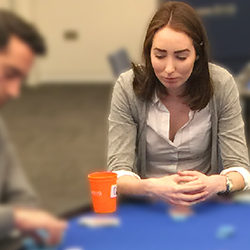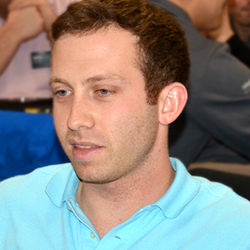
Of course this is true of financial options, but in addition it’s pretty generally true in all games. It’s really pretty straightforward. Suppose you are allowed to do something, but doing it is worse than not doing it on average. Then you can just choose to never do it, and so it immediately has zero value.
Playing with short stacks in tournament (which happens all the time, because the structure of tournaments is specifically designed to make the stacks short to force bustouts and completion of the tournament) is a perfect example of how denying your opponents options can be a great idea. Suppose you have a pretty decent hand, and you want to raise, but you only have six big blinds. Suppose you raise to two big blinds. Now your opponent can either fold, call 2, or raise all-in to six.
Now here comes the key point. If he does raise to six, you have to call, because you’ll be getting better than 2-1 odds, and it’s incredibly unlikely that you could be that big of an underdog against his set of hands. Contrast with the case where you just raise all-in to six blinds. Now he can either fold, or call your all-in. So the case where he calls your all-in, and he raises you all-in when you raise smaller to start, both achieve the same result (you’re all-in for your whole stack). He can fold in either case, which is generally going to be a good outcome for you unless you have some monster hand. But if you raise small, you give him the extra option to call, see a flop, and then decide whether to go in.
Now this doesn’t constitute a proof that this is best, but the principle is sound, and all good players agree that this is the way to play in these situations. In fact, it’s not terribly difficult to find (with a computer) an actual equilibrium-type “solution” to a game where everyone has a smallish number of blinds and the only options are to go all-in or fold.
OK, so that’s all prologue to Day 2 of my tournament. I entered the day with 2000 chips, which is a “jam or fold” stack when the blinds are 100-200 as they started the day. I played a couple rounds, and finally found a hand worth going in with—in fact, a hand far above the threshold, AK. A player I knew was reasonable opened in front of me, I reraised all-in, He correctly called with QcTc, and I was a 60-40 favorite. To win a poker tournament, you have to get lucky many times. In fact, notice that if I were to win this hand, I would have outperformed my expectation by 40%! But I wasn’t the lucky one this time. So there’s always next year.




Subscribe Now
Get each new post sent straight to your inbox